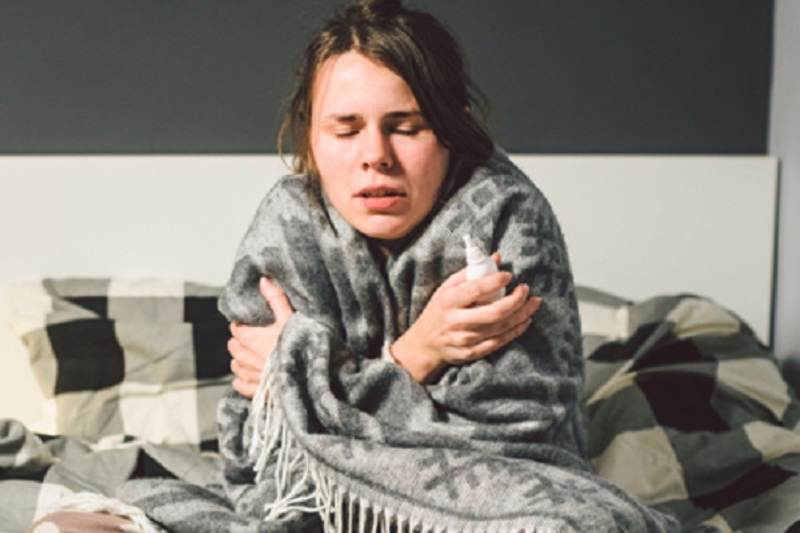Take care during cold weather
Published: Tuesday, January 9, 2024
Cold weather is expected over the next few days, so residents are urged to protect their own health, and the health of vulnerable friends, family members and neighbours.
Share this

Want to know how to stay warm and well in the winter? here are a few tips. Anyone can become unwell if they get too cold. It is important to follow this guidance so that you are prepared for cold weather and can take action to keep yourself warm. There are also actions you can take to keep healthy during the cold weather.
While exposure to cold can affect anyone, some people are particularly at risk. These include:
- older people (aged 65 and above)
- people with cardiovascular (heart and circulation) conditions
- people with respiratory conditions (in particular chronic obstructive pulmonary disease and childhood asthma)
- people with mental health conditions
- people with learning and/or physical disabilities
- young children (particularly those aged under 5)
- pregnant women
- people on a low income
You should heat your home to a temperature that is comfortable for you. Low indoor temperatures can have a serious impact on your health, especially if you have medical conditions or are older.
Simple changes can help to keep you and your home warm. These include:
- try to heat rooms you spend a lot of time in, such as the living room or bedroom, to at least 18°C.
- try to reduce draughts; you can fit draft excluders around doors cheaply.
- keep your bedroom windows closed at night.
- wear several layers of thinner clothing; this could keep you warmer than one thicker layer.
Cost of living support and Community Spaces
View all available support, including available grants to help with heating costs and free local advice and support lines, on the Cost of Living Hub.
Community Spaces are open to all residents across the borough, including in libraries, where you can keep warm. Some of these offer hot drinks, food and activities. Find your nearest.
Thinking Works provide a winter warmth home service during the winter months for people on a low income; people aged 65 and over; people living with mental health conditions; people living with a disability, people who have a long-term health condition (such as diabetes or COPD) and people with children under the age of 5 or pregnant women.
Look after yourself and others
There are other things you can do to reduce risks from cold exposure to yourself and others around you.
You can get vaccinated to help reduce risk from respiratory illnesses during the winter. This is particularly important if you have certain long-term health conditions that mean you are more vulnerable to the effects of cold weather. You can check your eligibility for a flu vaccination or COVID-19 booster online. Contact your pharmacist or GP or visit the NHS England website to learn more.
You should treat minor winter ailments like colds or sore throats promptly. NHS England provides information on steps you can take to manage colds or sore throats yourself, and when it may be appropriate to visit your local pharmacist for further advice and treatment. You can find details for your nearest pharmacy by searching online.
If you are worried about your health or feeling down, contact your local pharmacist, NHS 111 or your GP, who will all be able to offer advice and support. In an emergency dial 999.
When you are indoors, there are things you can do that will help to keep you warm and reduce the risk of developing medical problems, for example:
- try not to sit still for more than an hour or so.
- if you find it difficult to move about, stretching your arms and legs can also help keep you warm.
- if you have visitors, it can help stop the spread of germs to ventilate the room for a few minutes before and after they arrive; you might be more comfortable leaving the window open during their visit, if it’s not too cold.
When out and about, wear shoes with good grip to avoid slips and falls on slippery or icy surfaces.
If bad weather is forecast, plan ahead and check that you’ve got enough medication and food in case it’s harder to leave the house. If you cannot leave the house, try to identify others who might be able to help pick up food and medication on your behalf. The NHS Care Volunteer Responders scheme may be able to provide help for those who are eligible for support.
Other people around you, particularly older neighbours, family friends and neighbours, may need extra support during cold weather. To support others you can:
- keep in touch with them and ask whether they are feeling unwell, or whether they need any practical help.
- if bad weather is forecast, see if they need any help stocking up on food and medication.
- if you are worried about someone else’s health, contact your local pharmacist, your GP or NHS 111, who will all be able to offer advice and support.
- if you think they may have hypothermia, contact NHS 111 for further assessment, and in an emergency dial 999; typical signs that someone may be suffering from hypothermia include shivering, slow breathing, tiredness or confusion, and pale, cold skin.